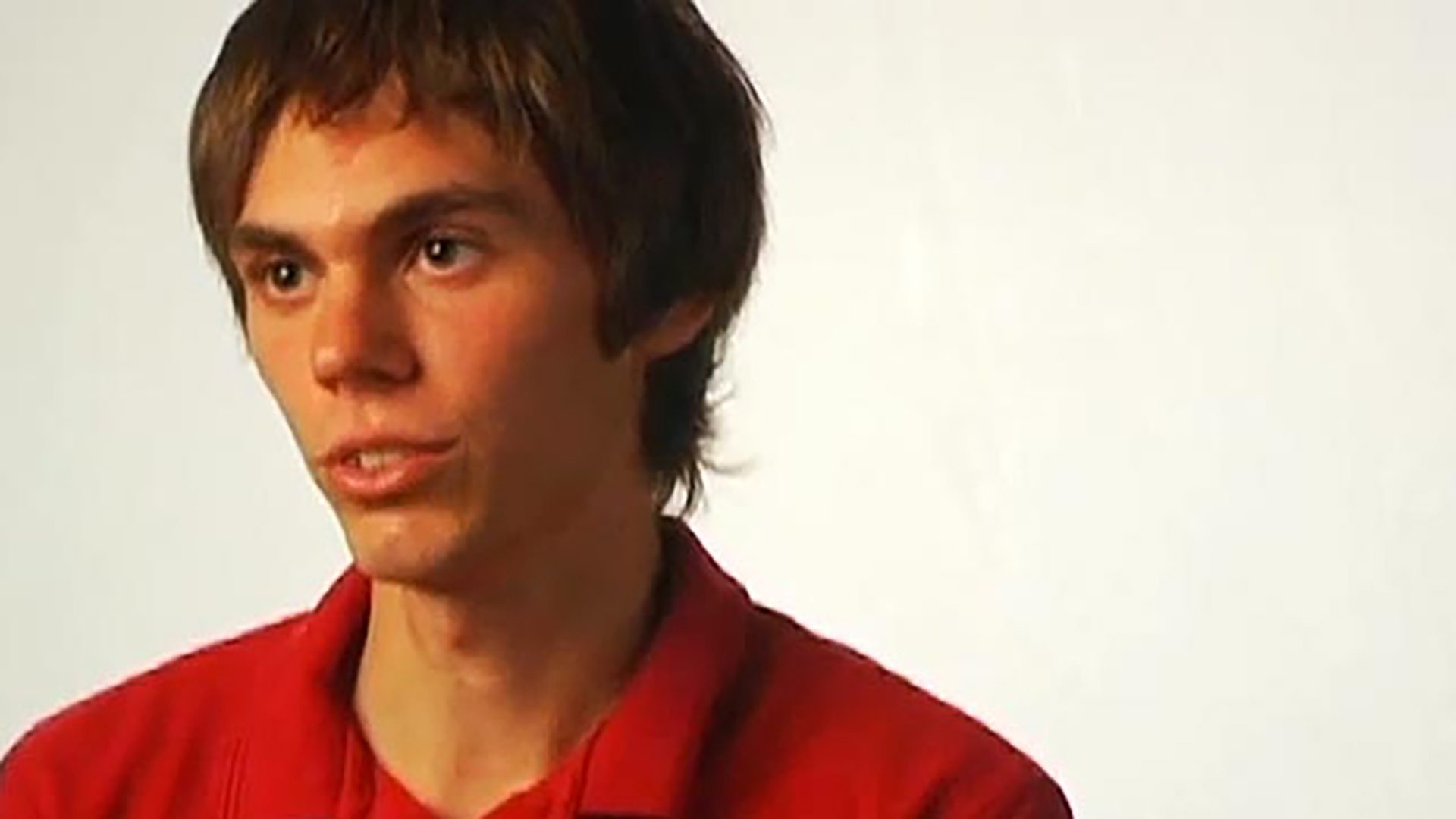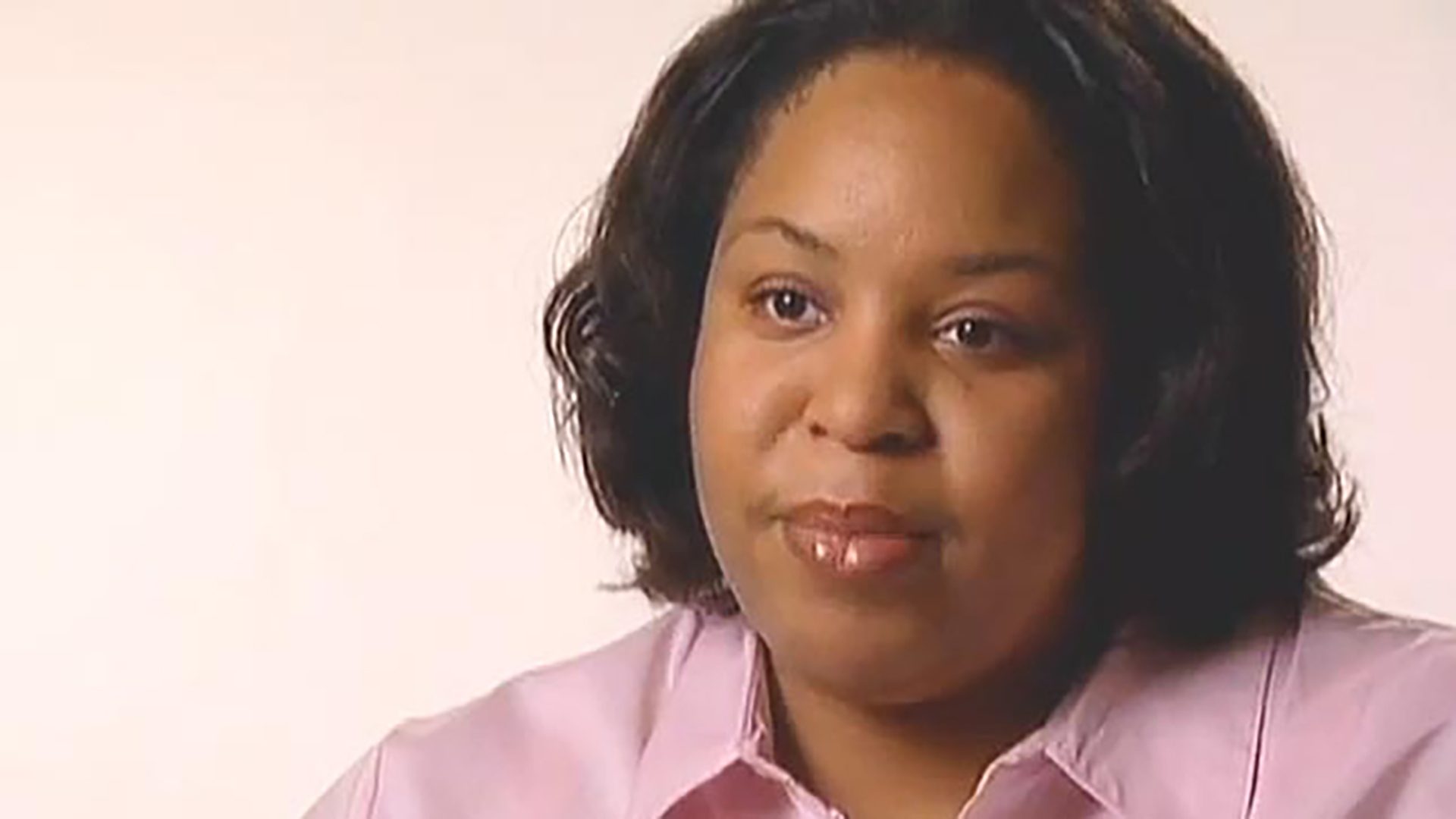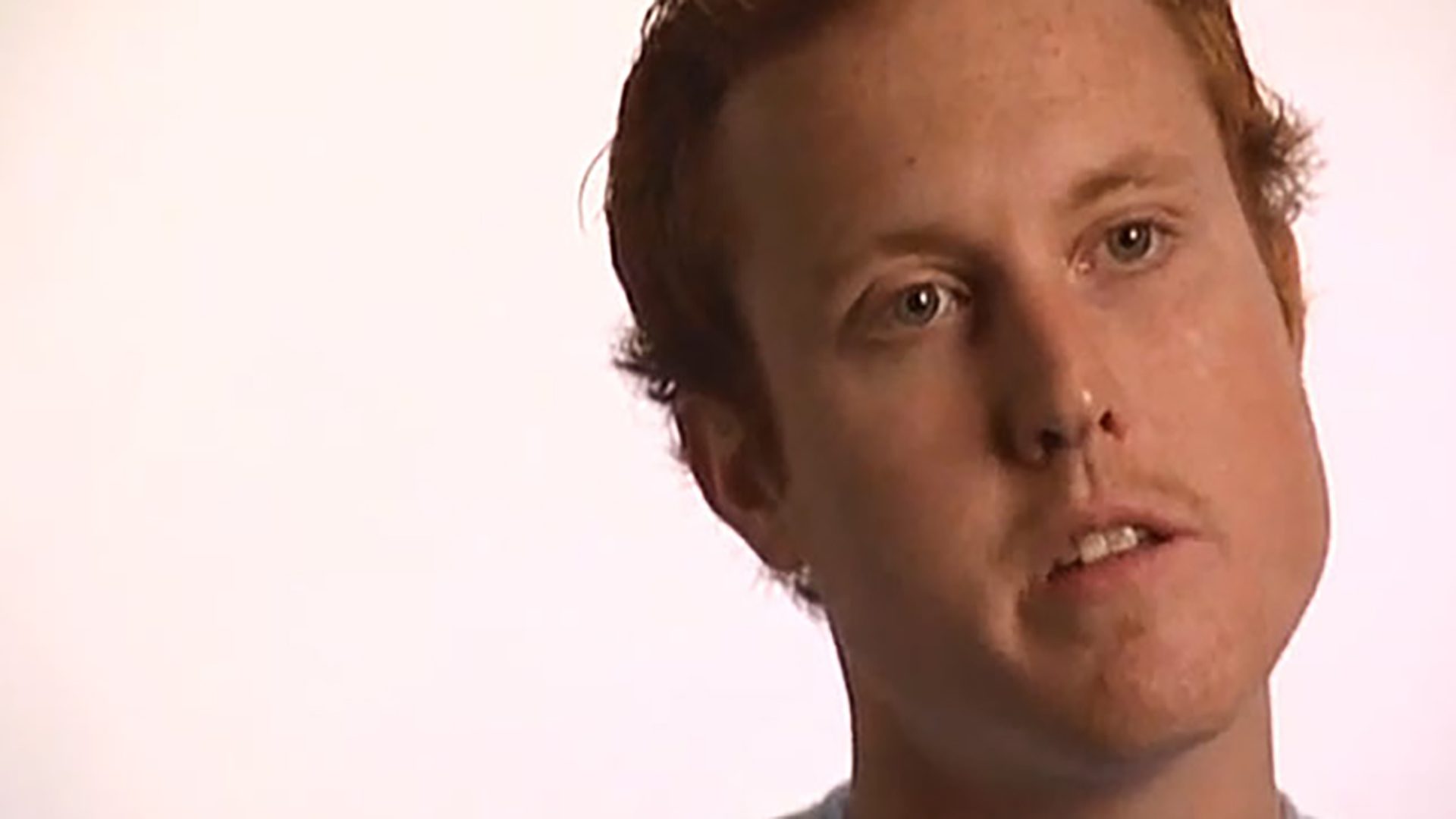Survivor Interview – Jon H.
Jon discusses his rare form of skin cancer, dermatofibrosarcoma protuberans, and life as a survivor.

I became a survivor in April of 2004 when I was diagnosed with skin cancer.
I had a rare form of skin cancer called dermatofibrosarcoma protuberans. I had Mohs surgery, where they go in and take an initial amount, then they slowly keep taking more and more out around the edges, and check and see if it’s still cancerous. The cancer had spread in my scalp. It spread throughout the muscle tissue and all over the place. So, it was a really major surgery.
I have a big scar from the skin graft they had to put over the open wound. They took the skin from the front of my thigh. I think with my skin graft, they didn’t take enough layers of skin to get the follicles. There’s actually going to be no hair growth at all from it. It did go up into my hairline a little bit but fortunately not enough to look really weird. But I am growing my hair out over it. I usually have really short hair but I’m growing it out longer now. That’s difficult because I don’t like having long hair but my scar is a bright, shiny scar so I have to choose: what do I want? I try to wear hats more now to cover it. It’s nothing I’m ashamed of; it just feels weird having a big mark and people ask about it all the time. It’s hard.
I’ve worked on eating better and not drinking much pop; just the basic stuff like that. That also goes in hand with becoming more serious with my running and my cross-country because you have to eat well. I’m trying to get a good amount of sleep; that’s hard sometimes but I think that’s really important to me. Wearing sun block. I try to do that; that’s more important. I used to take my health for granted and now I try not to. I try to respect my body more than I used to.
Because of my skin cancer, I sometimes bug people about taking care of themselves a little better. I haven’t really told people specifically to put on sunscreen all the time, even though I do pretty much as much as I did before. But I found that people that are really close to me, I really urge them to get stuff checked because I know it can’t hurt to get it checked. It could save your life. If there’s a family member or my girlfriend or a close friend that asks, “Do you think I should get this checked out? This is kind of weird. I’ve been feeling these symptoms.” I’m like, “Yes. Just do it. It can’t hurt.” Because the doctors were surprised that I went in to get mine checked because it looked like a little pimple, and they were saying how good it was for me to go in. I know it’s good for everybody if they go in.
I took a few weeks off to recover from the surgery and started running again. I’ve been focusing a lot on my cross country, getting into good shape, and keeping myself busy. I put together a fun run this summer to raise money for the Lance Armstrong Foundation. We raised $3,200, which is pretty good. I run 70 miles a week, keep busy and enjoy life now. I used to go running in the middle of the day with no shirt, and now I try to wear shirts. Try to stay a little more covered, a little more careful about checking out moles, even though that’s not related to my type of cancer. They don’t think it’s sun related. I still want to be careful because, obviously, I’m prone to cancer. I have to use moisturizer every day, Vitamin E.
I’m lucky that I had a girlfriend before, and I don’t have to worry about finding one now. I think I’d be a little more self-conscious then because I’ve always felt that I’m a pretty good-looking guy. Not to be cocky or anything, but I’m confident in my appearance and now it’s shaken a bit, which is weird to me. I’m dealing with it. I think it’ll get better once I get more used to it and accept it a little bit more. I’m lucky. They said that there are things that I can do to help close the scar a bit, like more surgeries. Not that I want to go into surgery any time soon, but maybe in a couple of years I’ll be ready to do that. That way, I can just have one solid scar rather than a huge hole in my head.
My relationship with my girlfriend definitely did become more intense once I was diagnosed. We were pretty close before, but once I told her, it became that much more important. We both realized how important we were to each other. The cancer brought us closer. She did a great job of being there for me. At first, when I told her on the phone, she was in shock. She was like, “Oh, okay.” But then she called her mom, and she was crying to her mom and telling her friends. She had a hard time dealing with it too. I visited her. She doesn’t cry very much, and I don’t either, but we were both bawling, of course. She came to Seattle after my surgery; she lives in Spokane and stayed with me for a bit. It really helped, her being there.
I think my priorities have changed because I try not to worry about little things as much. If something’s not quite right, I don’t worry about it as much. If maybe I miss a few points on a test, I don’t worry as much about it as I used to. I try not to be as critical of other people, not argue with other people as much, or complain about little things as much. Right now, I’m living in-house with a bunch of other people, and everyone has little quirks that are kind of annoying, but right now I’m just, “Okay. That’s a quirk and it doesn’t really matter in the scheme of things.” As I’ve gone through this experience, I’ve come to realize that there are more important things.
I decided to join the Peloton Project because it seemed perfect for what I wanted to do. After I was diagnosed, I thought, “I want to do something to give back,” because if it weren’t for people doing fundraisers and such, I would not have gotten through my experience as easily as I did. I got off a lot easier than people did 50 years ago. I wanted to give back. I wanted to do something. So, I looked around for organizations to help do this, and I stumbled upon the Lance Armstrong Foundation when I was at the Nike outlet at North Barrens. I was like, “I like Lance Armstrong. He’s an endurance athlete like me. I can relate to him in some way.” I looked into it more online, and it seemed perfect. It fit perfectly with what I wanted to do.
Livestrong means being confident and trusting yourself and trusting others. If you have that belief in yourself, then you can make it through really hard times. I live strong by trying to be positive. Trying to go out every day and live how I want to live, help other people, work hard, and believe in myself, believe in others. Mainly, I try to make life better.
The experiences you go through in life can be used to help you or hurt you, and usually it’s your choice. My coach at the University of Washington always says, “Life is ten percent of what happens to you and ninety percent of how you react to it,” and I totally agree. So, I think you need to react well and try to make the best of things. Always try to find that silver lining, and you can grow from experiences in your life. That’s what I’ve done, and I hope everyone else can do that too.
I’m Jon Hickey. I’m 20 years old, and I’m a skin cancer survivor.

